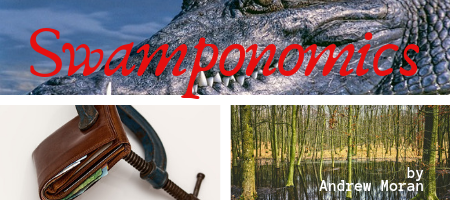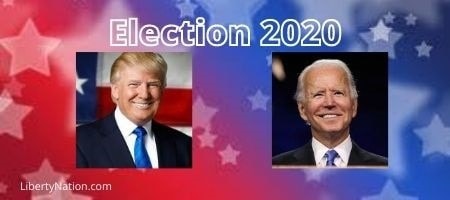Prime Minister Justin Trudeau is giving Canadians a little nudge toward electric vehicles in the form of tax credits, deductions, and write-offs. Despite running a multi-billion-dollar federal deficit, even before the Coronavirus pandemic decimated the economy, the Liberal leader thought it was financially prudent to hand out tens of millions of dollars to one of the richest companies in the world: Tesla.
Ford and Tesla Given Taxpayers’ Loonies
According to a new study by the Canadian Taxpayers Federation (CTF), Tesla received more than $60 million in taxpayer subsidies between May 2019 and March 2020. Overall, Ottawa extended approximately $134 million in less than one year to subsidize electric cars.
CTF Federal Director Aaron Wudrick said in a statement:
“Tesla created a base model vehicle only for the Canadian market that was listed at one dollar below the threshold to qualify for taxpayer subsidies. The result is that taxpayers have paid out $60 million to this company by subsidizing the sales of its luxury cars. People who want to buy expensive cars should feel free to do so. But taxpayers should not be forced to subsidize luxury purchases by the well-off.”
But Tesla is not the only one to receive taxpayer-funded handouts. Prime Minister Trudeau and Ontario Premier Doug Ford announced that the Ford Motor Company would receive $295 million for its Oakville Assembly Complex to become a “global hub” for electric vehicle battery production.
Interestingly, Ford’s Progressive Conservatives had often slammed the provincial Liberals for crafting these cronyist deals. For example, then-Premier Dalton McGuinty was strongly criticized for giving Samsung $7 billion in subsidies, despite the province facing a tremendous budget shortfall. It is yet another sign that you cannot trust Tories to act like conservatives because they emulate the left, particularly in Canadian politics. If electric vehicles are truly revolutionary, companies like Ford and Tesla do not need to be on the government dime. It would be up to the free-market system.
Republicans v. Democrats
American voters are only a couple of weeks away from one of the most contentious elections in modern history. Will the incumbent continue the pattern of earning the eight-year throne, or will the Democrat with nearly 50 years of experience be victorious? November will be riveting.
WalletHub, the personal-finance website and excellent resource, published a new report that attempted to answer the question: Which party is better for the economy, Republicans or Democrats? It concluded that the U.S. economy performed best when the government consisted of a Democratic presidency and a Republican Congress. Researchers discovered that the stock market, jobs, poverty, the uninsured rate, and the national debt improved under a Democrat in the White House and the Republicans running Congress. This makes sense in many different ways.
 When the elephants and donkeys are too busy fighting each other, they are too busy to control the lives of the American people and centrally plan the economy. Their focus is on annihilating each other to attain absolute power ahead of the next electoral battle. Moreover, Republicans typically do a slightly better job at advancing free-market principles and reining in government spending when they are in opposition to the White House, albeit not by much. When they control the keys to the executive and legislative branches, conservatives and libertarians need to be wary.
When the elephants and donkeys are too busy fighting each other, they are too busy to control the lives of the American people and centrally plan the economy. Their focus is on annihilating each other to attain absolute power ahead of the next electoral battle. Moreover, Republicans typically do a slightly better job at advancing free-market principles and reining in government spending when they are in opposition to the White House, albeit not by much. When they control the keys to the executive and legislative branches, conservatives and libertarians need to be wary.
That said, there are a couple of things important to note. First, the U.S. is largely a federalist society, so many of the metrics, such as home price appreciation or real gross domestic product (GDP) growth, depend on the success and failure of the 50 states. Second, the data do not consider factors that may have led to economic gains or catastrophe. For example, under former President George W. Bush, the September 11 terrorist attacks deepened the 2001 recession that was triggered by a decade of easy money and speculation that fueled the dot-com bubble.
The Coronavirus, as another instance, destroyed much of the gains engineered by President Donald Trump.
And, of course, who can omit the Federal Reserve System in any discussion about the U.S. economy? From artificially low interest rates to facilitating moral hazards, the central bank has manipulated and distorted the marketplace, meaning that it can be hard to see how well the economy is without the Fed’s training wheels that seem to be permanently installed.
Suspend the 16th Amendment?
Forget the 25th Amendment. Let’s talk about the 16th Amendment. For more than a century, the U.S. government has confiscated the fruits of your labor with little to show for it. Now, during a horrendous economic slump, Stephen Moore is proposing to suspend the income tax. Writing in The Wall Street Journal, Moore, a member of President Trump’s economic recovery task force, suggests that the country would be better off by eliminating the state middleman and not collect income taxes. He wrote in the op-ed:
“Before President Trump suspended negotiations Tuesday, he and Congress were homing in on an economic stimulus plan that would cost some $2 trillion. That money would fund schools and hospitals, a bailout of mostly Democratic states and cities that have amassed large budget deficits, small-business loans, airline and Postal Service bailouts and $1,000-a-person payments to households. It’s a mishmash of spending that aims to inflate the economy for a few months.
There’s a better way. Instead of spending the money, why not cut out the government middleman and not collect the taxes? In 2020 the personal income tax was expected to raise $1.81 trillion and the corporate income tax $260 billion, for a total of $2.07 trillion. For a little more than $2 trillion, Congress could suspend the personal and corporate income tax for a year.”
That is not a bad idea, and it is something that legendary economist Milton Friedman would endorse. Remember, he famously stated, “I am in favor of cutting taxes under any circumstances and for any excuse, for any reason, whenever it’s possible.”
The problem? The federal government just posted a record $3.1 trillion budget deficit. It is great to slash or suspend confiscatory measures, but Washington would likely maintain its free-spending ways. When this happens, the Eccles Building intervenes and prints money out of thin air, transferring the tax burden to price inflation., which is already the most egregious form of taxation.
Stephen Moore is one of the top minds in the field of economics in the country. He has taken a step in the right direction with his proposal, but he needs to go all the way: suspend government spending!
~
Read more from Andrew Moran.



